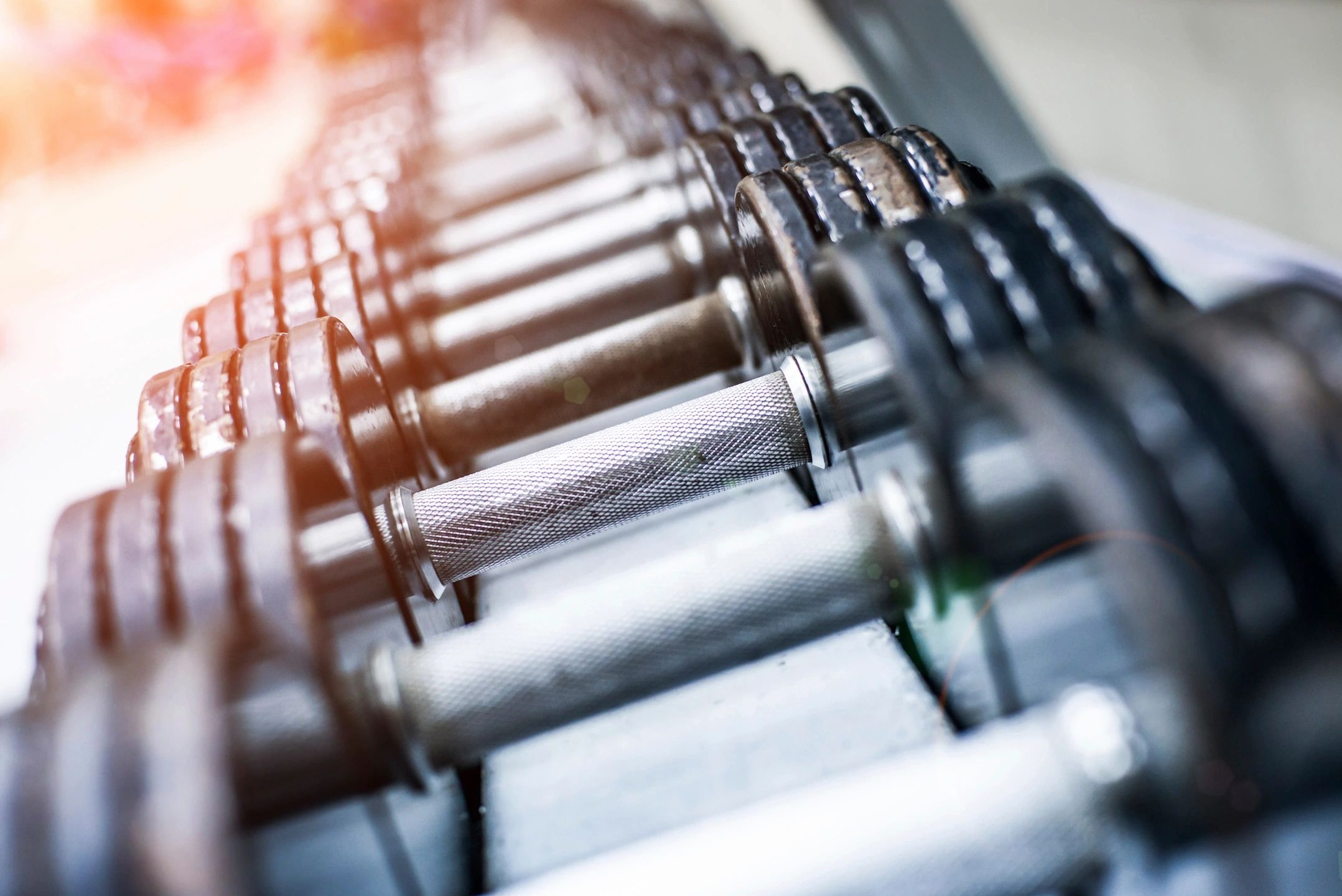Are you a morning lark or a night owl? When it comes to fitness, the time of day can make a difference. Some people swear by a sunrise sweat session, saying it sets a positive tone for their day. Others can’t bear the thought of exercising before breakfast and prefer to wind down with a workout in the evening. But which is best? From the impact of morning workouts on your circadian rhythm and productivity, to the potential advantages of evening workouts on muscle strength and stress relief, we’ve got the details. Ready to find out the best time of day to exercise for your health and fitness goals? Let’s jump in!
Key Takeaways
-
Morning workouts can help establish a fitness routine, improve sleep cycles, and increase productivity.
-
Evening workouts can improve physical performance, muscle strength, and help relieve stress.
-
The best time to exercise can depend on individual factors such as chronotype, personal schedule, and lifestyle.
-
Fitness goals like weight loss or muscle gain can influence the ideal time to workout.
-
Consistency is critical in deciding the workout time; it’s best to choose a time you can stick to regularly.

Morning vs Evening: Comparing Exercise Times
In a battle of dawn versus twilight, when is the best time of the day to exercise? Let’s examine the benefits and drawbacks of sweating it out in the morning and evening.
Starting your day with a workout has its perks. It’s a great way to kickstart your metabolism and set a positive tone for the day. Plus, you’ll get a natural energy and mood lift from the endorphins released during exercise.
On the downside, you may feel sluggish and struggle to reach peak performance if you haven’t fueled up properly. And if you’re not a morning person, it could be a challenge to consistently stick to a dawn exercise schedule.
Shifting the scene to twilight, some studies suggest that your body’s physical performance may peak in the afternoon or early evening. This makes it an excellent time to engage in high-intensity workouts or weight training.
Yet, late-day workouts aren’t without their cons. For some, they might disrupt sleep, and for others, a long day could lead to skipping workouts due to fatigue or other commitments.
In the end, the best time of the day to exercise really depends on your personal preference, schedule, and fitness goals. Listen to your body and pick the time that feels right for you.
|
Time of Day |
Pros |
Cons |
|---|---|---|
|
Morning |
Kickstarts metabolism, improves mood |
Can feel sluggish, hard to maintain for non-early risers |
|
Evening |
Peak physical performance, can replace bad habits |
May disrupt sleep, easier to skip due to fatigue |
For more personalized advice on creating an exercise routine that best fits your lifestyle, visit our Move Wellness category, where you’ll find tips and tricks to help you stay motivated.

Advantages of Starting Your Day With a Workout
If the crack of dawn is your chosen best time of the day to exercise, you’re onto something beneficial. Several perks can make you fall in love with early morning pumping sessions.
-
It’s like an alarm clock for your body, waking up your metabolism and firing up your calorie-burning furnace for the day.
-
Morning workouts can help you sleep like a baby. They help regulate your sleep cycle by adjusting your body’s internal clock, the circadian rhythm.
-
Ever heard of fasted cardio? An empty stomach workout can torch that stubborn belly fat more efficiently.
-
Now, who doesn’t want a mood booster? Morning exercise can give you a rush of endorphins – the feel-good hormones.
-
Plus, it can spike your productivity levels, helping you conquer your working day like a pro.
But what if you’re not a morning person? Or if the evening suits your lifestyle better? That’s perfectly fine — fitness is not a one-size-fits-all. The time of day to exercise could differ for everyone. The secret lies in consistency and listening to your body. Whether it’s morning exercise or evening workouts, the best time is when you can stick to it. Remember, your health is in your hands, so make it count!
Potential Drawbacks of Morning Exercise
Looking on the downside of early-bird workouts, we can identify a few hiccups. For starters, your body might be running on fumes if your dinner was light. You might find your ZZZs interrupted when your alarm clock rings for an early sweat session. Plus, your physical performance might lag in the morning due to lower body temperature. You could notice that you need more time to warm up and get your body going.
Here are five potential hiccups with morning workouts:
-
Running on low fuel if dinner the night before was light.
-
An early alarm can disrupt your sleep cycle.
-
Physical performance might not be at its best due to lower body temperature.
-
Warming up could take longer in the morning.
-
If you’re not naturally a morning person, it can be a struggle to motivate yourself to exercise.
Remember, every cloud has a silver lining and this applies to our training routines as well. No matter what time of day you choose to exercise, the most critical thing is that you’re moving and taking care of your health. Stay consistent, listen to your body, and enjoy the process.
The Case for Exercising in the Afternoon or Evening
So, let’s take a fresh look at the enticing benefits of afternoon or evening workouts. There’s a strong argument for exercising later in the day. For starters, your physical performance soars. Your muscle strength, flexibility, and endurance are at peak levels, making this the ideal time to push your limits.
Your body’s testosterone levels, which are instrumental for muscle building, are highest in the afternoon. Who knew an afternoon sweat session could be a natural booster for your bodybuilding efforts? Evening workouts can serve as a perfect stress-buster. Sweating it out after a long day can help you unwind and even replace unhealthy evening habits like mindless snacking.
Research has shown that some individuals experience better sleep quality after an evening workout. A good night’s sleep is a cornerstone of health, impacting everything from your mood to your weight. Let’s not forget the impact of our weight loss efforts on our general well-being. Exercising later in the day might just be your ticket to dreamland.
In a nutshell, the best time of the day to exercise can vary widely based on personal factors and fitness goals. The real victory is in staying active, so select a time that best suits you and stick to it.

Benefits of Evening Workouts: A Closer Look
Peering into the perks of nighttime fitness, let’s unravel some more. Evening workouts have their magic. They may be the best time of the day to exercise for some, especially when aiming for muscle gain. Why, you ask?
-
Peak body temperature occurs in the evening, which can make you feel more active and energetic, boosting workout performance.
-
Hormone levels, including testosterone, are at their highest, aiding in muscle building.
-
Exercise can serve as a stress-reliever after a long day, promoting mental health.
-
Replacing unhealthy evening habits like snacking with a workout can aid in weight loss.
-
Evening exercise might lead to better sleep for some, making it a winning choice for a healthy lifestyle.
Remember, whether it’s morning exercise or an evening session, the goal is regular physical activity. It’s all about listening to your body and finding a routine that works for you. Fitness isn’t a one-size-fits-all affair. So, set your schedule, lace up your sneakers, and get moving. Your body will thank you for it.
The Possible Cons of Late-Day Exercise
Evening exercise isn’t always sunshine and roses. For some folks, it might mess with their shut-eye, particularly if they’re doing high-octane workouts. Yes, you heard that right! Late-night sessions of sweat and grit can sometimes cause a spike in adrenaline and heart rate, making it harder to wind down for a peaceful night’s sleep.
-
Sleep disruption: Heavy workouts late in the day can lead to sleeplessness for some.
-
Consistency obstacles: Feeling worn-out after a long day or juggling evening commitments might result in skipping workouts.
-
Late-night eating: Evening exercise could potentially trigger post-workout hunger pangs, leading to late-night munching which isn’t conducive to weight loss goals.
-
Decreased social life: Committing to evening workouts might interfere with social plans.
-
Gym overcrowding: Post-work hours are usually peak times at the gym, which might limit equipment availability.
To make a long story short, the best time of day to exercise is highly individual. Evening workouts might suit some health enthusiasts, but it might be a no-go for others. The trick is to listen to your body, observe your energy levels, and stick to what works best for you. It’s all about creating a fitness routine that’s sustainable in the long run, and that, my friends, is the real secret to achieving your health goals.
Individual Factors Affecting Optimal Exercise Time
In determining the best time of the day to exercise, it’s pivotal to take note of personal factors. Your internal body clock, or chronotype, has a say in whether you’re more active in the morning or evening. If you’re a morning lark, sunrise sweat sessions may be your cup of tea. On the other hand, if you’re a night owl, the evening could be your ideal workout window.
Your daily schedule and obligations are major considerations too. If you have a jam-packed workday, sliding in a workout early morning might be more feasible. On the flip side, if your mornings are hectic, you might find it easier to pencil in a workout in the evening.
Lifestyle factors are not to be overlooked either. If you’re juggling work, family, and social commitments, finding a consistent workout window that doesn’t interfere with these responsibilities is imperative.
Fitness goals can steer your workout timing, too. For example, if you’re chasing fat loss, morning workouts on an empty stomach can aid in burning that stubborn belly fat. Conversely, if muscle gain is your goal, you might find our post on maximal exercise performance handy. It discusses how the body’s hormone levels, which aid in muscle building, peak in the afternoon, making later workouts potentially more effective.
In the grand scheme of things, consistency is the golden rule. Find a workout time that you can stick to, day in and day out. Listen to your body, adjust as necessary, and remember, the best time to exercise is when you will do it consistently.

How Fitness Goals Can Determine Your Workout Time
Considering your workout objectives can guide the timing of your exercise routine. Want to shed some pounds? Morning workouts might just be the ticket. Early exercise, especially before breakfast, has been linked to increased fat burning and weight loss. So, if you’re targeting that stubborn belly fat, set your alarm a bit earlier, and kickstart your day with a brisk walk or a run.
On the flip side, if you’re aiming for muscle gain or improved performance, you might fare better later in the day. Afternoon or evening workouts can align with the body’s peak temperature and testosterone levels, both of which can fuel your strength training sessions. So, if you’re working on bulking up or boosting your endurance, delay your gym time to post-lunch or evening hours.
Aside from fitness goals, your personal schedule and lifestyle are critical to consider. The time slot you pick for your workouts should be one you can consistently adhere to. If your days are chock-a-block with tasks, you might need to be flexible and adjust your workout timing based on your daily commitments.
In the end, the best time of the day to exercise is a personal choice, dictated by your fitness goals, schedule, and body’s response. Remember, consistency is king when it comes to reaping the benefits of exercise. So, choose a time that suits you best and stick to it!

5 Tips to Help You Decide Your Ideal Workout Time
Choosing the right time for your workouts can be puzzling. You’re likely asking yourself, ‘What’s the best time of the day to exercise to achieve my fitness goals?’ If that’s the case, consider these five pointers.
-
Take a peek at your daily energy levels. Some of us are morning larks, others are night owls. If you’re most energetic early in the day, morning workouts might be right up your alley!
-
Scrutinize your daily routine. If your days are jam-packed, squeezing in a workout might seem like a Herculean task. But, with a bit of juggling, you can make it work.
-
Align your workouts with your fitness ambition. If you’re trying to shed belly fat, hitting the gym in the morning might be beneficial. But if muscle gain is your goal, evenings might serve you better, as testosterone levels are at their peak.
-
Consistency is your secret weapon. Choose a time slot that you can stick to, day in and day out. Occasional workouts won’t cut it, regularity is the name of the game here.
-
Your body knows best. Pay attention to how it reacts to workouts at different times. If you find you’re more productive and energetic post-workout in the morning, that might be your golden hour.

Subscribe To Our VIP Newsletter
Join our VIP mailing list to receive additional content that goes even deeper into the latest tips to ensure you and your families health, fitness and wellness.























